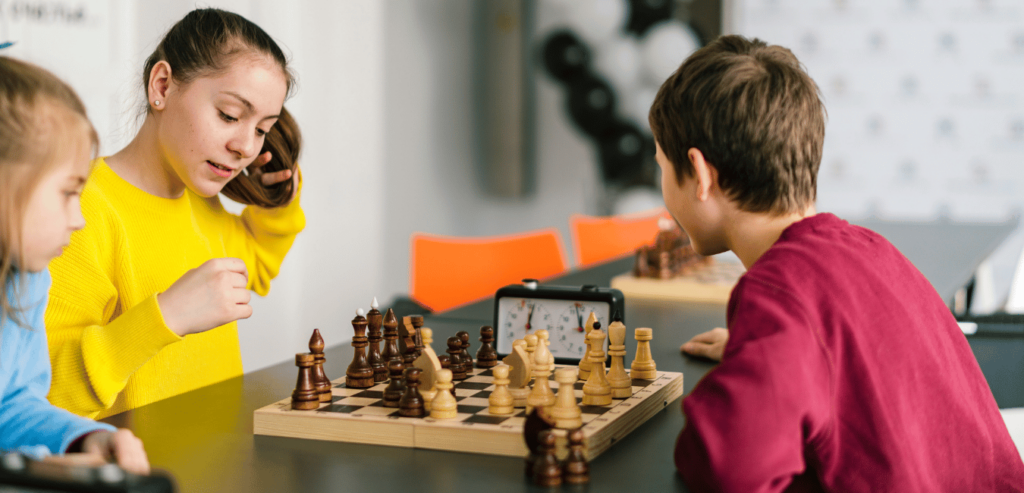In recent years, there has been a growing awareness of the paramount importance of students’ mental wellbeing. As the pressures of modern education mount, finding effective ways to alleviate stress and promote mental wellness becomes increasingly critical. Surprisingly, chess clubs offer a haven of respite amidst this tumultuous landscape. Beyond the strategic battles, chess has quietly been making strides in enhancing students’ mental health. This article delves into the ways in which chess clubs can positively impact mental wellbeing, championing qualities such as focus, mindfulness, and stress relief
The Art of Concentration:
One of the first skills honed in a chess club is concentration. Chess demands unwavering attention to the board, the pieces, and the opponent’s moves. This intense focus on the present moment can act as a mental sanctuary for students, momentarily shielding them from the pressures of academia and personal life. It’s a brief respite from the chaos, allowing young minds to re-center and regain control.
Mindfulness in Every Move:
Chess is a slow, deliberate game. Each move requires careful thought and planning. This deliberate pace encourages mindfulness, the practice of being fully engaged in the present moment. Students in a chess club learn to contemplate their moves, anticipate their opponent’s strategies, and adapt to changing circumstances. These skills transcend the chessboard, enabling students to approach challenges in their lives with a more mindful and composed mindset.
Stress Relief and Emotional Regulation:
The act of playing chess can be therapeutic. It provides a healthy outlet for stress and pent-up emotions. The chessboard serves as a unique battlefield for stress relief. When students engage in a game of chess, they’re transported into a world of calculated moves and strategic thinking. This mental shift offers respite from the stressors of school and personal life. Wins are celebrated, losses are accepted as learning experiences, and through it all, emotional regulation is practiced and refined.
Building Resilience:
Chess is a game of setbacks and comebacks. Every player, regardless of skill level, experiences losses. However, it’s in the face of defeat that resilience is forged. Chess club members learn to analyze their losses objectively, identify areas for improvement, and return to the board with newfound determination. This resilience extends to their broader lives, helping them bounce back from academic challenges and personal setbacks.
Social Connection and Support:
Chess clubs offer a sense of belonging. Students come together to share their passion for the game, forming connections and supportive friendships. These social bonds are essential for mental wellbeing. They create a network of individuals who understand the challenges of both chess and life, providing a safety net of empathy and encouragement.
Conclusion:
In the realm of chess clubs, mental wellness is not just a concept but a reality. Through the lens of chess, students develop concentration, mindfulness, and emotional resilience. They find solace in the 64 squares, relief in the rhythm of the game, and support in their fellow players. As the world becomes increasingly complex and fast-paced, chess clubs stand as a beacon of mental wellness, reminding students to slow down, focus on the present, and nurture their mental health. In the realm of chess, they find not only strategic challenges but also a path to greater wellbeing.


